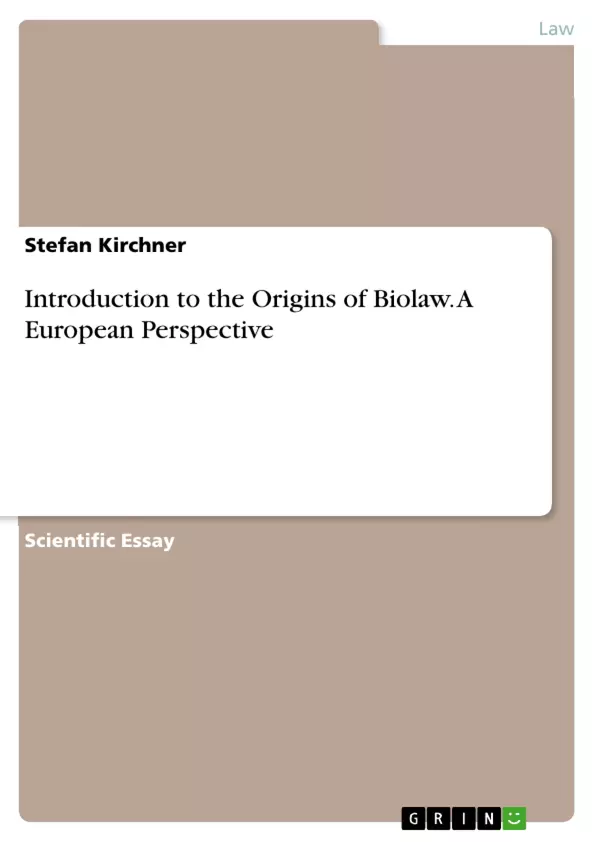In a society which practically values commercial productivity above almost all else, the right to life and human dignity of the weak, sick and infirm is increasingly at risk. This leads to an increasing debate of the concept of human dignity. Deeply rooted in philosophical, moral and religious ideas, human dignity is a concept which can be difficult to access for lawyers. At the same time it has been given pride of place in a number of legal systems, including in Article 1 of the German Constitution, the basic law. It also provides the fundament of international human rights treaties such as the European Convention on Human Rights. In this essay, some of the ideas behind human dignity as a concept are explained against the backdrop of both modern biolaw and international human rights.
Inhaltsverzeichnis (Table of Contents)
- Introduction
- Human Dignity
- The legal concept of human dignity
- Catholic Approaches: Natural Law and Bioethics
- The idea of human dignity
- Equal human dignity
- Catholic position on justice
Zielsetzung und Themenschwerpunkte (Objectives and Key Themes)
The text provides a comprehensive overview of the origins of biolaw from a European perspective, focusing on the role of natural law and Catholic notions of human dignity in shaping the field. It aims to demonstrate how these concepts contribute to our understanding of the value of the human being and its implications for biolaw.
- The Importance of Human Dignity in Biolaw
- The Role of Natural Law in Biolaw
- The Catholic Church’s View on Human Dignity and Justice
- The Interplay of Religious Values and Biolaw
- The Evolution of Biolaw in a Societal Context
Zusammenfassung der Kapitel (Chapter Summaries)
- Introduction: The introduction sets the stage for the discussion by highlighting the increasing risk to human dignity in a society that values commercial productivity above all else. It emphasizes the importance of understanding the sources and contributions to biolaw, especially those derived from natural law and religious values.
- Human Dignity: This chapter explores the concept of human dignity as an inherent feature of being human, going beyond a mere legal right. It connects this concept to the idea of natural law and its role in shaping biolaw. The chapter also addresses the challenges faced by human dignity in a world where human rights violations persist despite legal frameworks and ethical pronouncements.
- Catholic Approaches: Natural Law and Bioethics: This chapter delves into the Catholic perspective on human dignity, emphasizing the connection between Natural Law, God's creation, and the inherent value of every human being. It explores the Catholic Church's stance on equal human dignity, emphasizing the importance of non-discrimination and the promotion of justice for individuals and society as a whole.
Schlüsselwörter (Keywords)
Biolaw, Natural Law, Human Dignity, Catholic Bioethics, Religious Values, European Perspective, International Law, Human Rights.
- Arbeit zitieren
- Stefan Kirchner (Autor:in), 2014, Introduction to the Origins of Biolaw. A European Perspective, München, GRIN Verlag, https://www.grin.com/document/312246



